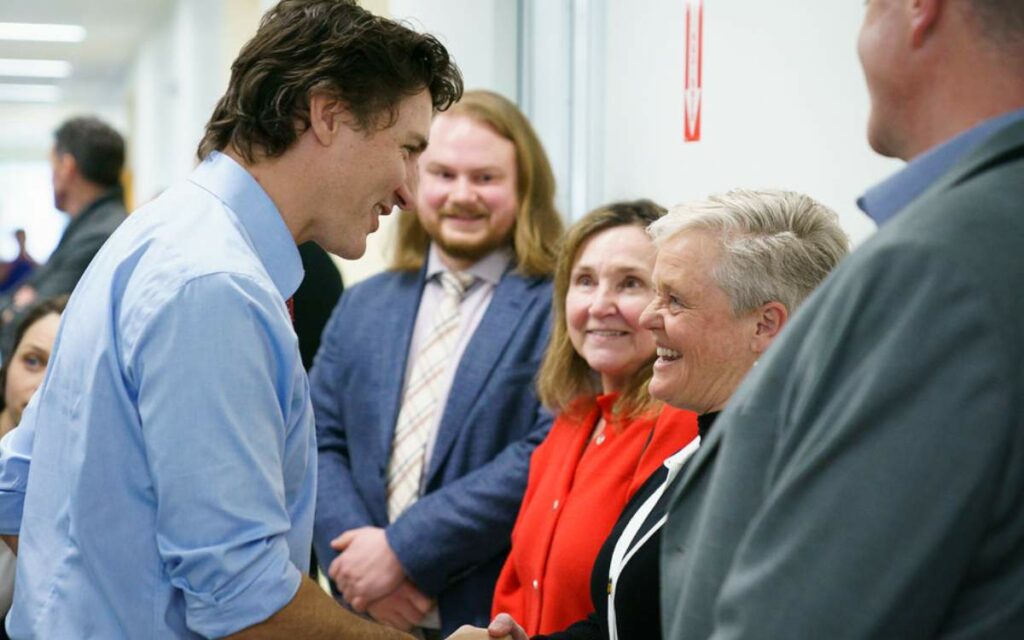
If there was a key takeaway from budget 2023, it’s that the Prime Minister believes his path to victory in the next election looks markedly similar to that of 2015. Photo credit: PMO/Adam Scotti
For anyone familiar with the terms of the Liberal-NDP supply and confidence agreement, Wednesday’s budget was, as many predicted, big on spending and light on details about how to pay back an ever-ballooning deficit.
The deficit itself is expected to come in at around $40 billion dollars for the 2023-24 fiscal year. This year’s budget and fiscal projections were also the clearest signal yet that the Trudeau government has no intention to return to balance as long as they remain in control of the purse strings.
Are the Liberals on the right track here? Do Canadians want a government that spends freely on progressive policies that are targeted toward a subset of the population, rather than provide broad-based tax cuts and put the country on track to reach balance in the near future?
The jury is still out on the matter. In recent memory, Canadians have made it clear that issues related to the federal debt and deficit aren’t top of mind. In fact, a poll conducted by Ipsos during the 2021 federal election found that only 33 per cent of Canadians believed that the focus of the federal government shifting out of the COVID-19 pandemic should be on balancing the budget.
Considering that federal subsidies were going out the door faster during the peak of the pandemic than at any time since the second world war, one might think that Canadians would’ve wanted to cast a ballot for the party that took a more prudent approach to spending. Alas, that was not the case.
Worth noting, however, is the fact that things have changed dramatically since the last election. With interest rates at a two-decade high, and lingering inflation driving the cost of living up, the middle class is without a doubt worse off than they were just 18 months ago. More than ever, Canadians are worried about how to stretch their paycheques at a time when personal debt levels are at record highs.
On the eve of the budget, the Globe and Mail ran a story that the government would make cuts to the outsourcing of contracts and federal travel that are expected to save the Trudeau government billions of dollars over the next five years. It seems that government insiders wanted to lead with this story and at least nod to the fact they are taking seriously the need to adjust spending to the current economic conditions, but the reality is that this is a solution to a problem of their own making. Outside of this announcement, there was little in the way of a plan to reduce government spending.
If there was a key takeaway from budget 2023, it’s that the Prime Minister believes his path to victory in the next election looks markedly similar to that of 2015. The word “clean” appeared in the 270-page budget document 283 times. Along with commitments for spending on healthcare transfers, dental care, and Indigenous reconciliation, this budget could have been tabled anytime in the last seven years and no one would have batted an eye.
Canadians would be naive to believe that the Trudeau government would change tack at this juncture of their mandate. More so than ever, they are bound by the supply and confidence agreement to spend big if they want to hold onto the reins of power, regardless of the state of the economy. For those looking for a preview of what the Liberals will be fighting the next election on, look no further than the federal budget.

Josie Sabatino is a Senior Consultant at Summa Strategies, focused on providing strategic insight and helping clients meet their objectives in an ever changing and complex political and regulatory environment. Prior to joining Summa, Josie spent nearly a decade in political communications and most recently served as the Director of Communications to the Hon. Erin O’Toole, former Leader of the Official Opposition.




















